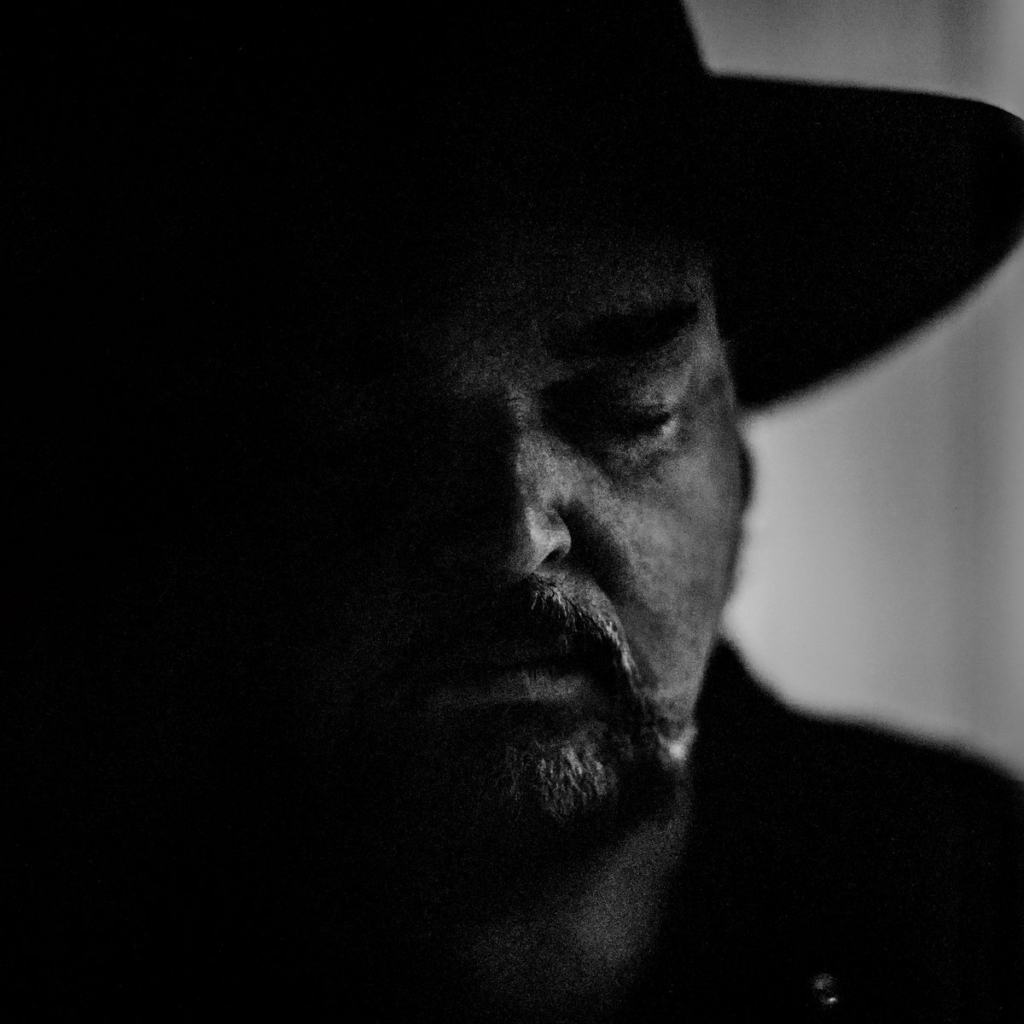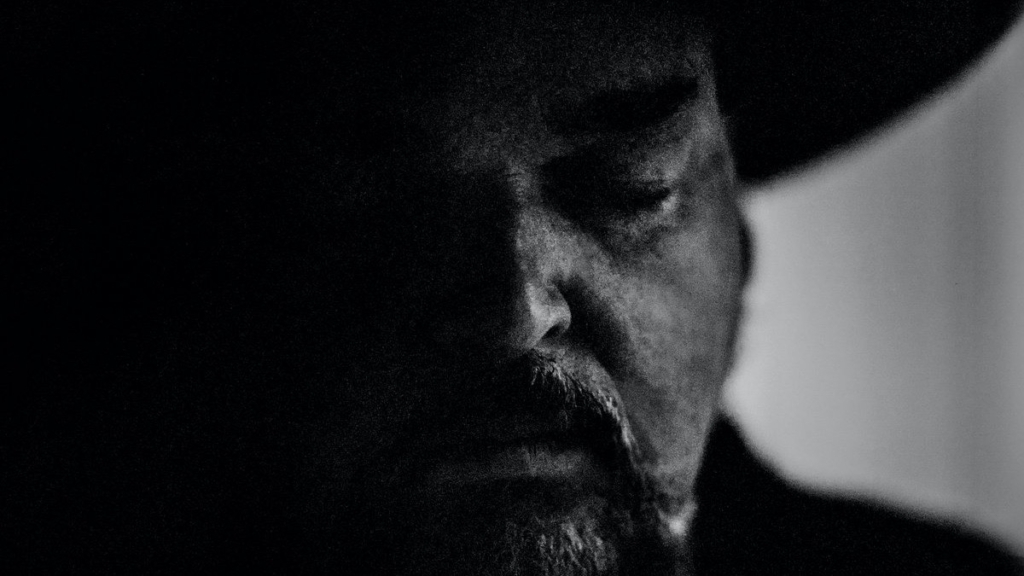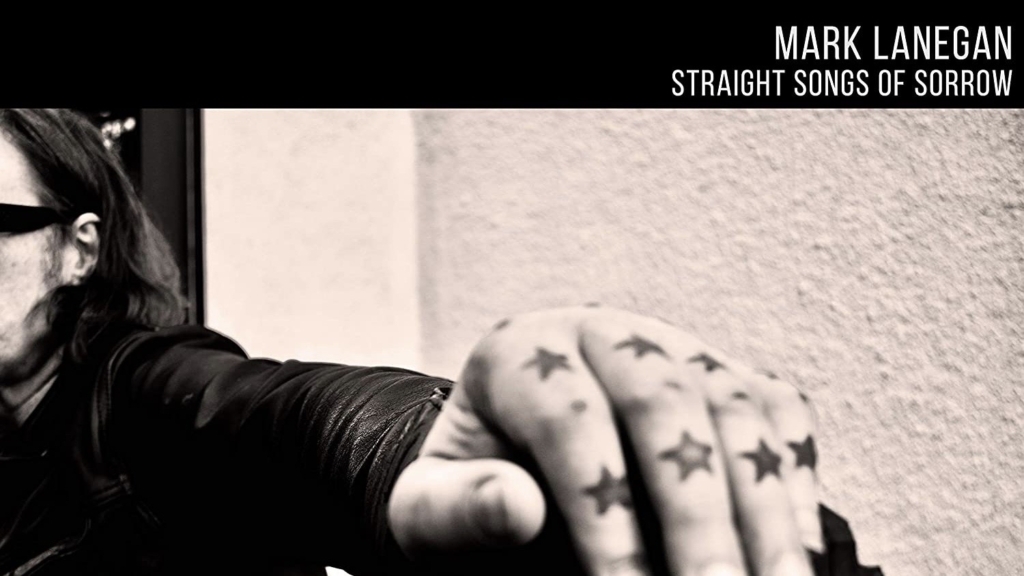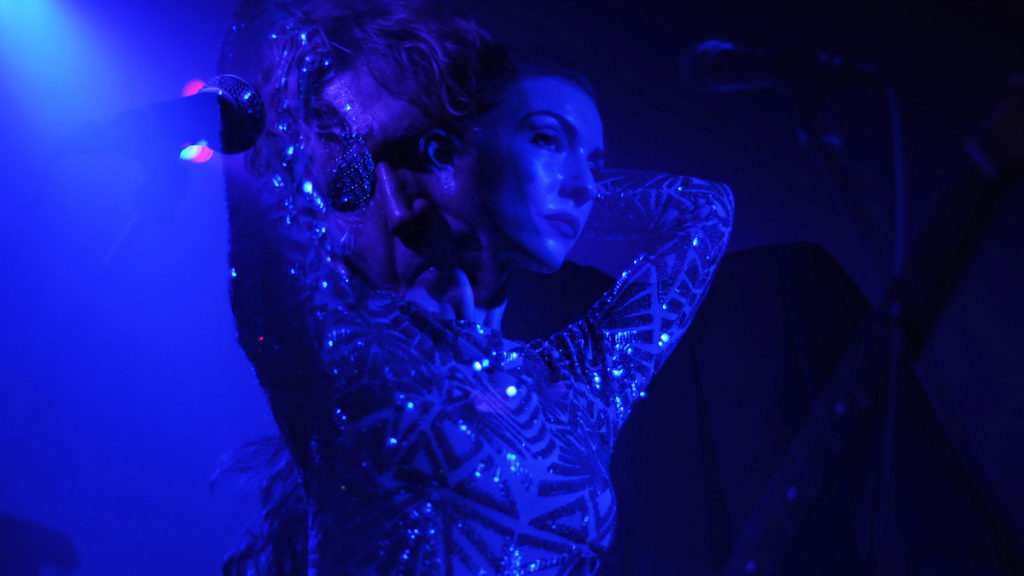If you love Chris Cornell’s Euphoria Mourning or have followed albums by Mark Lanegan, Them Crooked Vultures, Queens of the Stone Age, Desert Sessions, Eleven and listened to the grunge-era music for long time not only with nostalgia, so you have been magnetized by that kind of musical-constitutional depth which clings from disharmony to the heights of a fuller life – then I got something for you: you really should get acquainted with Alain Johannes’s solo albums, such as his last one, Hum, released in July 2020.
’That day, Alain showed me a variety of technical exercises, scales and patterns, to help me gain bass proficiency. They enabled my hands to grow strong, and soon the bass started feeling natural under my fingers. He helped me develop the physical ability to play the rhythms in my heart. The exercises he taught me are still the ones I play before every show. Alan later changed his name to Alain Johannes, and still has a vibrant career in music. I’ll always be grateful to him, that day was magic.’ (Flea: Acid for the Children: A Memoir, Grand Central Publishing, New York, Boston, 2019)**
I do not know, what would I rather highlight from the art of Alain Johannes: the ’Hangin ’Tree–, Saturn Wheel-, Nature wants to kill me’-kind of pulsation? The rad octafuzz of Reach Out, Mission, Metamphetamine Blues? The otherworldly voices of theremin and background vocals (just like in Follow my way, The Bleeding Whole,)? The Eastern European melodic world (see Disappearing one), the tremolo solos that appear, for example, in songs like Flutter Girl or Steel Rain? The psychedelic virtuosity that combines flamenco-Arabic-Indian-Mediterranean elements? The cleanliness and complexity of his cigar box guitar?
Or rather: his wise, life-loving, contemplative, and at the same time incredibly dynamic, diverse and mature work.
’…[Alain] played with me in the Queens [of the Stone Age] and we have done various other things together. I always knew that when I made another record I was gonna make it with him because more than anybody I’ve ever worked with he understands what I am trying to do and makes it happen really quickly and brings a ton of enthusiasm, creativity to everything he does. If I make another one [record] hopefully he will work with me again.’ [Mark Lanegan, Entrevista en el marco del album Funeral Blues]
In earlier articles available on Grungery (A Soundgarden lepel alatt – Ten Commandos, Mark Lanegan lemezajánlók, Friends to the End of the World – Interview with Alain Johannes), we can read about how many music projects can give thanks for its birth to Johannes and his partner Natasha Shneider (with their band Eleven). They played a huge role in their creation: as co-musicians, co-authors, sound engineers, mentors, producers as well. At the same time, we can hardly hear in Hungary about Alain Johannes’s solo work, undeservedly. The three albums he orchestrated and recorded completely on his own are: 2008 Spark, 2014 Fragments & Wholes (vol 1.) and in July 31, 2020 he released Hum. (There is also the OST for Tom Clancy’s Ghost Recon Breakpoint and Wildlands video games, which sort of falls into a different category)
Listening to the albums it’s amazing to see how timeless the recordings are that Johannes made. Even Spark (though it was his first solo album) is very mature, thoughtful, deep and unified both in orchestration and in the quality of the songs. Without picking one piece, all of the tracks are amazing performances, which really adds to the essence of the album together. Strongly reduced from a collection of about 500 instruments, his majestic cigar box and 12-string guitar clearly dominate this record.
The orchestration and the musical world of Fragments & Wholes vol 1. already shows a much wider spectrum of the whole oeuvre than before; it is a more eclectic one. It is a special pleasure that each record shows the author’s handprint markedly. These albums do not come from someone who is still looking for their own style or someone who wants to meet expectations, but from a fully-fledged artist who totally embodies the music he creates. These records do not become one-sided or predictable; on the contrary, they offer a lot to discover. (And their constant listening significantly enhances the danger of selling our own worldly belongings and then exchanging the money for tickets for his concert, even to South America.) His musical world is too diverse and spacious to ever get bored with.
HUM
Before its release, in late July 2020, there were already at least a dozen of reviews on the album, two interviews and four video clips (for the songs Hum, Free, Hallowed bones and If Morning Comes). The first of the latter was the highly suggestive title track in the beginning of May. Below the video is this text that simply confirms the message of the front cover portrait:
’It’s more about me than probably any album I’ve ever done,’ says Johannes about the collection that follows a period of tragic loss, extreme illness and rebirth. ’It was something I was striving for and needed to communicate. Coming out of a difficult period, I was liberated. I had lost people who were very close to me. I went through struggles with my own health. There’s a personal energy behind the way it was recorded and the feel of the songs. It’s a document of my life right now. You can think of the album title, Hum, a few ways,’ adds Johannes. ’Of course, there’s a musical hum. There’s an electrical hum. To me, it suggests a sense of mystery. When you stop and listen to silence in nature, the hum is underneath the threshold of hearing. It’s a mysterious and magical sense of something existing, beautiful, and alive. It’s a blanket word for the sound of the ether—something that’s always been there, always will be there, and everything comes from it. It’s the common connection to everything.’
…And indeed: this aspiration can really be heard in most of the songs. The sounds brought to life by Johannes are not the noises and excitements that evoke the unpolished rawness of the Seattle sound; rather, they are sounds which encourage us to look more consciously beyond the obviously beautiful musical content for the hidden reality below the general stimulus threshold.
The album starts with Mermaids’ Scream, and its first chord rings unexpectedly. Both Spark and Fragments & Wholes Vol. 1. effectively begin with one energetic song, but this time I stunned because of something else. First time I felt like I’ve stumbled into somewhere: in a more personal and intimate place than with the previous albums. For example, in a half-lit Portuguese place (such as can be seen in a scene from the movie Casa del Fados by Carlos Saura), where fado is just about to burst out from people sitting at the tables. This association does not seem to be absolutistic, because Johannes plays here on a Portuguese guitar, and his singing style evokes the unique melancholy of fado, full of longing and pain. In the background of the song, at 0:38, the monk-like vocal (see Johannes’ mix of Judgement Day or Burning Jacob’s Ladder by Mark Lanegan) and a slowly stepping theremin-like sound starts. Both the instrumentation and the lyrics begin somehow to expand the space of the song. This landscape is still unknown to me, but now I recognize the guide. This is clearly Johannes.
The title track, Hum, was first released in this troubled and much-changing spring [of 2020]. When I first heard the song, it was like a good word fitly spoken. The verse lulls us, the chorus is pure magic: its ethereal choir uplifts, as if revealing a hidden world. With the pulsating melody, which steps in between 0:19 and 0:40, it could be called supernatural, or even more so: like nature is itself, if someone is able to marvel at its greatness: source of life, bustling diversity, ever-changing constancy, a world striving for balance. Although the year isn’t over yet, I can hardly imagine more of a decisive musical experience than what this song provided to me. Next song is Hallowed Bones, which on one hand may ease the seriousness, but on the other hand gives an other vivid impulse and a more balanced atmosphere to the album. Johannes says: ’Hallowed Bones came to me first as a visual of dancing around a fire in the woods at night. Almost like a pagan dance, a ritual in a trance celebrating love in the present and it’s continued pull after our loved ones are gone.’ Someone’s dynamic evokes the big favorite from the previous album Fragments & Wholes): Whispering fields, and it clearly illustrates Johannes’ another great ability to lead the melody into a whole unexpected direction, giving depth and unbelievable content for it (just like in Disappearing one).
The music and the video of If Morning Comes is more disharmonic – as if the droning guitar, the ’shaman’-drum, the cemetery, the moonlight, spiderweb etc. would not only express the pictures in the musican’s mind, but recall the motifs and the more ambivalent and less-harmonic musical world of Eleven or Euphoria Mourning. That droning guitar (in D) gives the basic tone for the melody, just like a mantra for meditation. In Free, we can hear the very calm and moody sound of cigarbox-guitar. The music video takes place in the finely polished Antelope Canyon, shaped by running waters, and at its near desert-environment. This place is extraordinary, experiencing something grandiose. The song’s slow and contemplative nature perfectly fits all of these. Both the landscape and the song are touching because they don’t evoke bitterness or anger, but rather a sense of calm which state comes from getting free of pain and desire. Desert landscape remains but the calm runs losing its head: Sealed is a slow-stepping blues with an echo-like vocal, a grim guitar, then a congesting-like solo. (This one shows a strong similarity with Jack of Wands from the previous album).
Cigarbox guitar comes back in Here in the Silence: with such inwardness and intimacy just like in Sweet Euphoria, although with (at least) doubled guitar and vocal. Not unusually Johannes uses wind instruments: you can hear the flute in the song All the way down and the clarinet in Disappearing One. For me, the modern Nine deviates mostly from the whole records. Maybe this instrumentation explains why Mark Lanegan’s album, Somebody’s Knocking comes to my mind – not accidently -, because he played decisive role in the creation of that record too. Like the first track, Mermaids’ Scream, the last one, Finis can be quite visual as well. Like if we were walking –this time not in an inward space, but – in a strong, medieval court where we are guided by the gentle ghosts of Alain Johannes.
If you would like more than a not only deep at listening of this unique album, you can get more detailed first-hand information regarding each song here. You can read about how shaped the tour in 2019 or the events of family members and very close friends this record. You can also get a bigger and closer picture of the songs’ instrumentation and the visions that helped the musician to create these extraordinary melodies and lyrics.
*
’There is always that first layer of people whose reactions and opinions you trust, they are honest and valued because of who they are. And to me Alain and Natasha became the first step, really. I was always more interested in not just knowing what they thought but seeing their reaction. Neither of them can hide their emotions when it is about music.’ (Chris Cornell, In: Unfinished Plan: The Path of Alain Johannes)
*
In a world where there aren’t too many hallowed places and chances to focus inside, it is exceptionally important to have records like Hum, which you don’t just pick up and play a particular song from it. It is a well constructed, whole one: if you start to listen to Hum, you go to the entire album, feeling purgation and restoration in the end.
It is interesting how Alain Johannes’s solo works were born, but I find that kind of mentality which appears on this records also important: it mostly contains something arcane, transcendent that is trying to make harmony among deeply lived experiences, losses and a life-focused, contemplative wisdom. In Johannes’s art nature is supernatural, and supernature can be seen through his nature. This attitude, I guess, firstly appeared on Euphoria Mourning, then on Howling Book, but – with the loss of his late wife and close friends – remains only with him. It’s his especially own which he shares with the musical world and with us, listeners.
__
Alain Johannes – Hub (LP)
Released: 31/07/2020
Label: Ipecac Recordings
Music: Alain Johannes
Tracklist:
- Mermaids’ Scream
- Hum
- Hallowed Bones
- Someone
- If Morning Comes
- Free
- Sealed
- Here in the Silence
- Nine
- Finis
* Reaching for what can’t be seen – a quote from Not On This Earth by Alain Johannes
** Special thanks to Matthew John Sanderson and Csaba Ostorics
__

__




